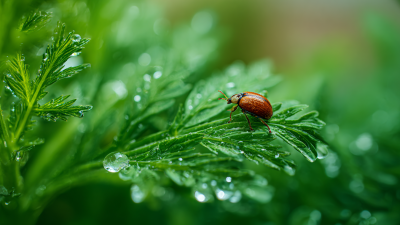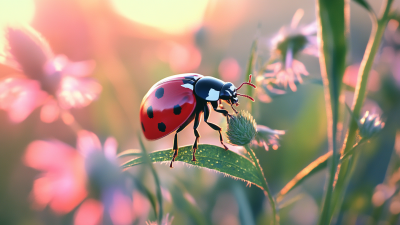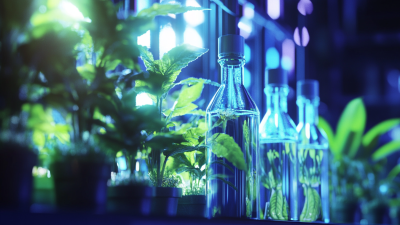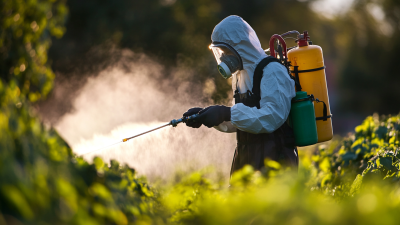 0551-68500918
0551-68500918 





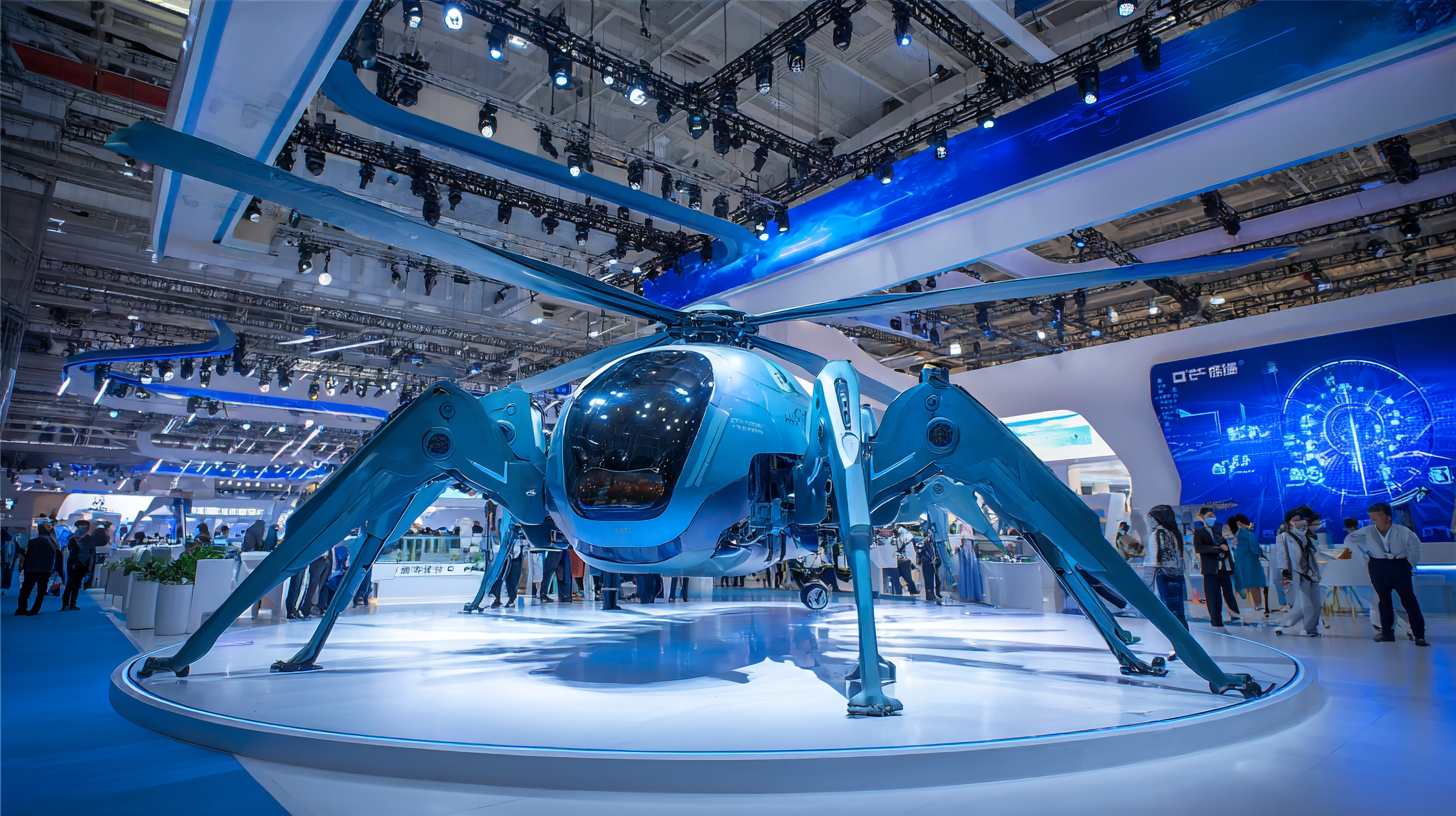 As the world of agriculture keeps changing, finding effective ways to handle pests has become more important than ever. The 138th China Import and Export Fair in 2025 is a really key event where companies get to show off their latest innovations to meet the rising demand for more sustainable and efficient pest control methods worldwide. One company, Innovation Meiland (Hefei) Co., LTD., is a big name in developing new pesticides, formulations, and processes, and they’re ready to roll out some pretty exciting solutions that fit right into this global shift.
As the world of agriculture keeps changing, finding effective ways to handle pests has become more important than ever. The 138th China Import and Export Fair in 2025 is a really key event where companies get to show off their latest innovations to meet the rising demand for more sustainable and efficient pest control methods worldwide. One company, Innovation Meiland (Hefei) Co., LTD., is a big name in developing new pesticides, formulations, and processes, and they’re ready to roll out some pretty exciting solutions that fit right into this global shift.
Based in Hefei, China, Meiland is leading the way in research that not only makes pest management more effective but also keeps environmental safety in mind. As we check out the latest breakthroughs in the world of insecticides, it’s pretty clear that these innovations are playing a huge role in shaping the future of farming—and ultimately, in making sure we can feed our growing world.
So, in 2025, at the 138th China Import and Export Fair, everyone's gonna be talking about the coolest new trends in global insecticide development. It’s really a showcase of how fast and creative the world of agriculture and pest control is moving. This event happens twice a year and pulls together industry leaders, innovators, and tech geeks all in one place, showing off groundbreaking technologies that could totally change the game for pest management. With everyone’s growing focus on protecting the environment and ensuring food security, eco-friendly insecticides are stealing the spotlight. Companies are eager to find that sweet spot—making products strong enough to do the job but gentle enough to not mess up the ecological balance.
You’ll hear a lot about biopesticides, which are basically natural substances or organisms that target specific pests without harming other critters. Plus, advances in nanotech are making insecticides smarter—more precise delivery, better performance, and using less overall. As folks from all sorts of backgrounds chat and swap ideas at the fair, it’s clear that all this collaboration is gonna push things forward. The end goal? Safer farming and more sustainable ways to produce food down the line.
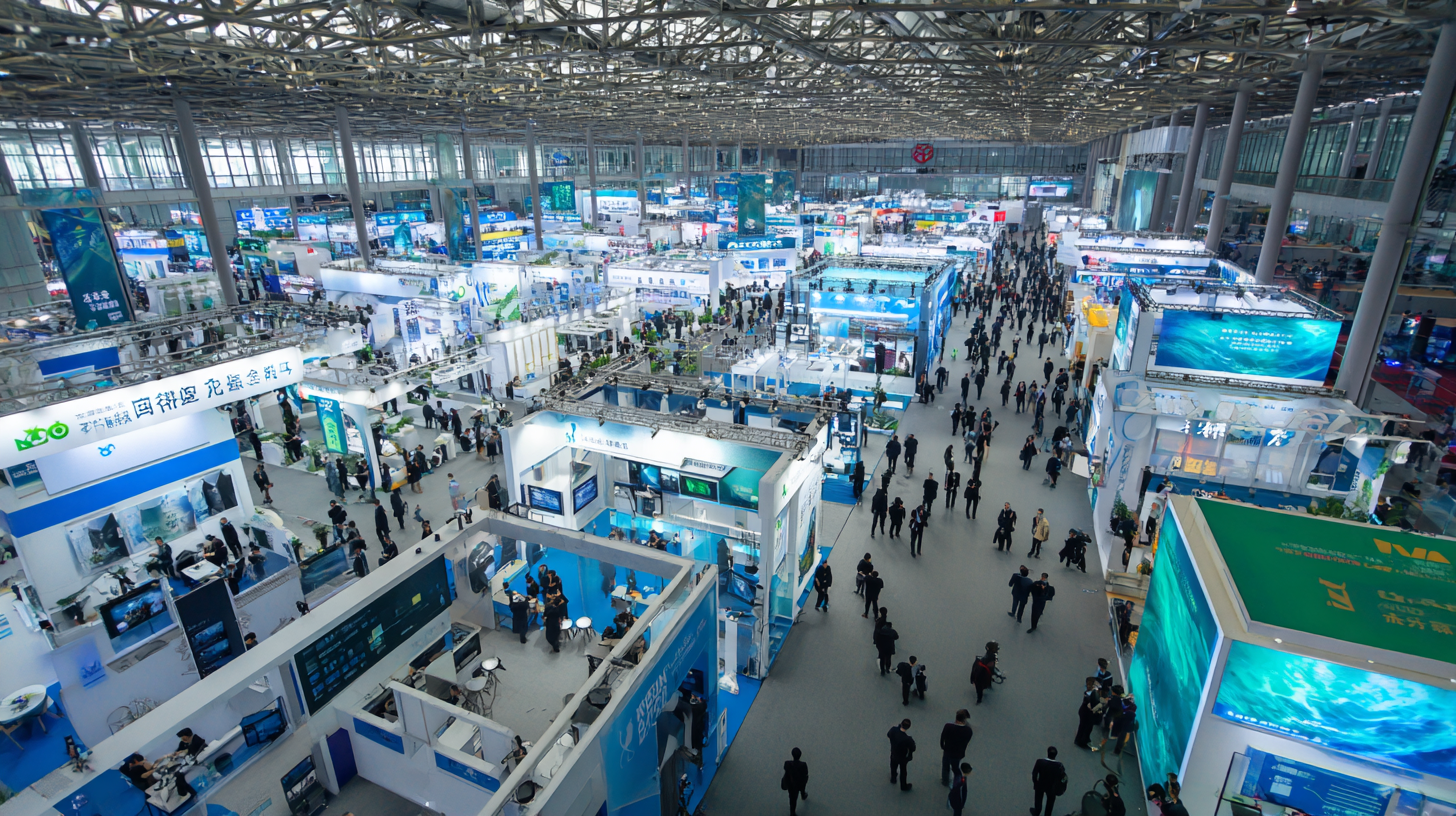
So, the 138th Canton Fair in 2025is shaping up to be a real hotspot for all things innovative in insecticide tech. You’ll see big names showcasing the latest and greatest in pest control, especially stuff that lines up with the global push towards more sustainable farming. I read somewhere that the worldwide Insecticide Market is expected to jump from about19.7 billion dollars in 2023 to around 25.4 billion by 2028 — that’s mainly because farmers are really looking for better, high-performing options. The Canton Fair is basically the perfect place for companies to introduce their new formulations and delivery methods that not only work well but are also kinder to our environment.
Some of the big players like Syngenta, BASF, and FMC Corporationare expected to be there, showing off what they’ve been working on in terms of Insecticide Solutions. Plus, there’s a lot of buzz around newer tech like biopesticides, which are forecasted to make up over20%of the global insecticide market by 2025. With governments and regulatory bodies putting more pressure to cut down on Chemical Pesticides, these companies are really pushing the envelope with safer alternatives that support both eco-sustainability and farmers’ needs. Honestly, all the stuff we see and learn at this fair is gonna have a big impact on how insecticides are developed and used worldwide in the coming years.
At the upcoming 138th China Import and Export Fair in 2025, it’s pretty exciting to see how innovative approaches to eco-friendly insecticides are coming into the spotlight. As more folks in agriculture start leaning towards greener solutions, researchers are working on non-toxic pesticides that aim to protect crops without messing up the environment too much. Lately, there's been a real shift — moving towards biopesticides and smarter tech that helps farmers adopt more sustainable practices. These advances are not just about meeting the increasing demand for food production, but also about supporting global efforts to keep pollinators safe and improve overall crop health.
If you're exploring options for sustainable insecticides, it’s worth considering bee-friendly products. For example, over 80% of coffee farmers are now choosing pest control methods that target pests like aphids but don’t harm those crucial pollinators. That not only helps preserve biodiversity but also boosts crop yields, since pests get managed without side effects on beneficial insects.
And since the market for insecticides is expected to grow a lot in the next few years, embracing more affordable, interdisciplinary innovations — like nano-enabled formulations — could be a real game changer. These kinds of tech-savvy solutions let farmers get better results while still keeping our planet in mind.
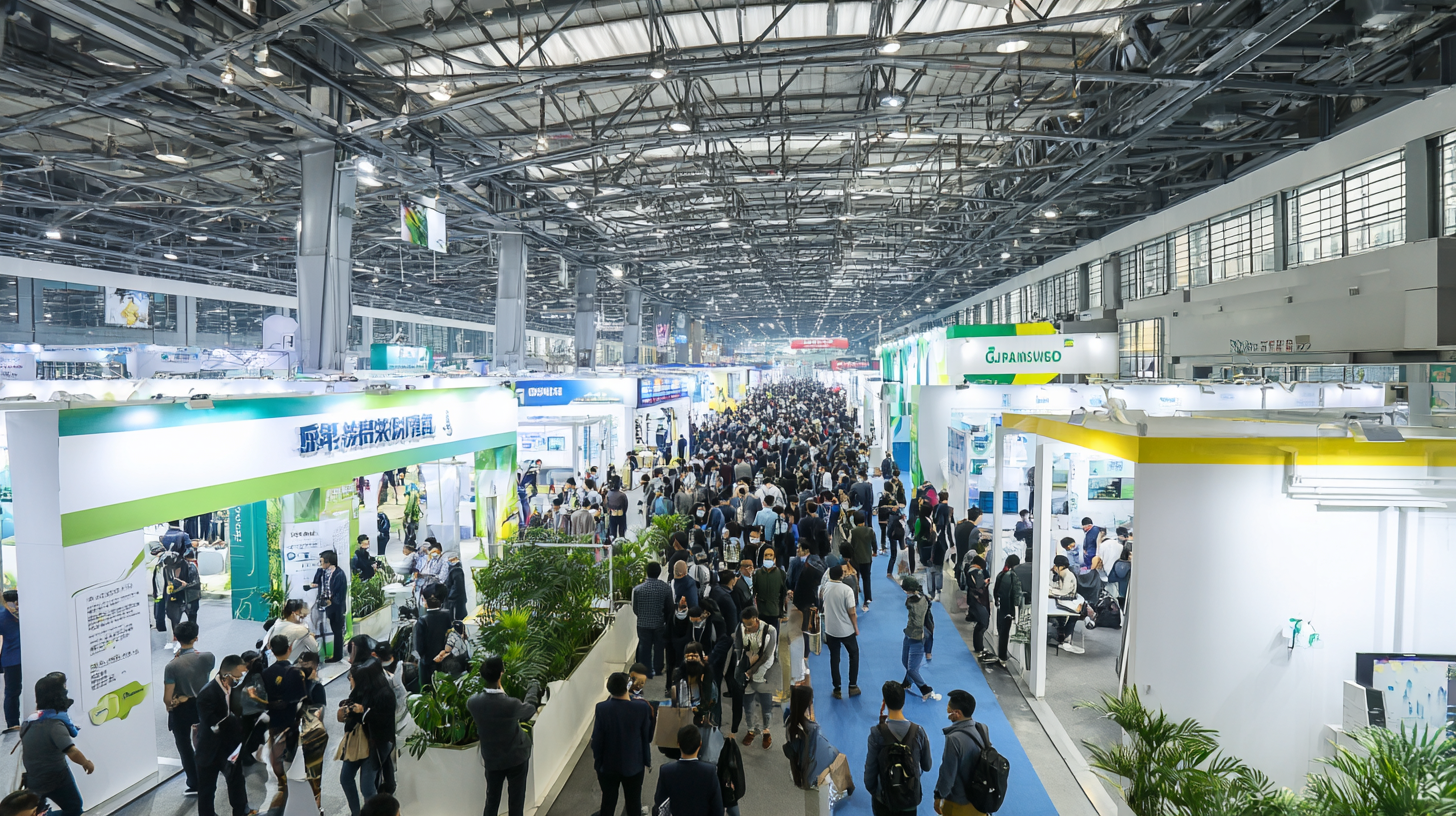
Lately, the rules around insecticides are really changing quite a bit. Just recently, the UK rolled out its Pesticides National Action Plan, which shows they're serious about working with farmers to cut down on environmental impacts. It’s actually the first big, all-encompassing strategy they’ve had in about ten years, trying to find a sweet spot between keeping agriculture productive and being eco-friendly. Over in Canada, they're also making some important updates to pesticide laws, so farmers need to stay on top of things and get used to new rules that encourage innovation but also protect the environment.
Looking ahead to 2025, it seems like the chemical industry is moving more and more toward sustainable ways of doing things. This shift is fueled not just by tougher regulations but also by what the market is demanding. For instance, the European Union has set a pretty ambitious target – they want to cut pesticide use in half by 2030. But that’s no small feat, especially when you consider the old-school pesticides still lingering around. Because of these regulatory pushes, we’re seeing more interest in biopesticides and new tech for pest control, opening up chances for modern farming to be both resilient and more efficient. Of course, balancing innovation with compliance isn’t easy, but it’s crucial. Everyone involved is trying to figure out solutions that boost farm productivity, keep people healthy, and protect the planet all at the same time.
Hey there! So, the 138th China Import and Export Fair in 2025 is really shaping up to be an awesome chance for folks in the insecticide industry to come together, share some fresh ideas, and maybe even spark new collaborations. It’s not just about checking out the latest tech — though that’s definitely part of it — but also about making real connections. You’ll have the opportunity to chat with industry big players, which could lead to some pretty exciting projects down the line.
When it comes to networking, a little prep goes a long way. Think about having a quick elevator pitch ready — something that sums up who you are and what you’re looking for. Also, don’t be shy about asking open-ended questions; they’re great for keeping conversations flowing and might even reveal some hidden partnership gems. And hey, following up afterward with a friendly message to say thanks or continue the chat really helps leave a good impression.
The event isn’t just handshakes and introductions — there are also panels and workshops run by experts in the field. These sessions are fantastic for catching up on the latest trends and best practices. Plus, using what you learn can seriously boost your strategies. All in all, just stay open to new ideas and make an effort to connect with a wide range of professionals — the more diverse, the better. It’s a great chance to grow your network and get inspired!
So, at the 138th China Import and Export Fair in 2025, everyone's gonna be talking about these new insecticide innovations that could totally change the game in farming. As more folks around the world are pushing for sustainable ways to grow food, the future of insecticides is all about finding eco-friendly options that do the job without messing up non-target species. We're seeing some really exciting stuff—like bio-based insecticides from natural sources, tiny nanoparticles for targeted delivery, and integrated pest management systems—these are really leading the charge.
Honestly, the outlook looks pretty good for these new insecticides, especially with all the tighter regs coming in and consumers demanding safer, cleaner food. Researchers and companies are teaming up to create next-gen solutions that not only boost crop yields but also help protect biodiversity. By tapping into advanced tech like genomics and AI, the agriculture world can respond faster to pest problems, which is a big step toward food security and more sustainable farming practices worldwide.
This chart illustrates the projected market growth percentages for various insecticide innovations showcased at the 138th China Import and Export Fair 2025. As the agriculture sector evolves, innovations such as biopesticides and microbial insecticides are expected to dominate, reflecting a significant shift towards sustainable practices.
: The main focus of the fair is on innovative trends in global insecticide development, particularly in the context of sustainable agricultural practices and pest management strategies.
Companies are developing eco-friendly insecticides that balance effectiveness with minimal ecological impact, aiming to reduce harm to non-target species.
Emerging trends include the use of biopesticides derived from natural organisms, advancements in nano-technology, and smarter delivery mechanisms for insecticides.
Nano-technology enhances delivery mechanisms, improves performance, and reduces overall usage of insecticides, making them more efficient.
Increasing regulatory pressures and consumer demand for safer food production methods drive the development of innovative and environmentally-friendly insecticides.
Examples include bio-based insecticides derived from natural sources, nanoparticles for targeted delivery, and integrated pest management systems.
These technologies allow for more rapid responses to pest challenges, enhancing crop yields while protecting biodiversity and contributing to food security.
The exchange promotes collaboration among stakeholders, driving further innovations in pest control and fostering safer agricultural practices.
Developing safer insecticides is crucial for protecting non-target species and ensuring sustainable food production in response to global environmental concerns.
Next-generation insecticides can enhance crop yields and protect biodiversity, ultimately contributing to improved food security and sustainable farming practices worldwide.
So, have you heard about the upcoming 138th China Import and Export Fair set for 2025? It’s shaping up to be a pretty big deal, especially for anyone interested in the latest innovations in the global insecticide scene. Expect some major exhibitors to showcase cutting-edge tech and eco-friendly practices—definitely a sign that everyone’s moving toward more sustainable solutions. Oh, and regulatory changes are gonna be a hot topic too; how these rules impact product innovation and how companies like Meiland Stock will adapt is definitely something to watch.
Plus, the fair isn’t just about showcasing new products. It’s a huge networking event where industry leaders can connect and maybe even team up for future projects—that could really change the game for insecticide innovations in farming worldwide. Meiland Stock, with its focus on R&D, is really pushing to stay ahead. They’re exploring new pesticide formulations that line up with these new trends, so it’ll be interesting to see what they bring to the table.
